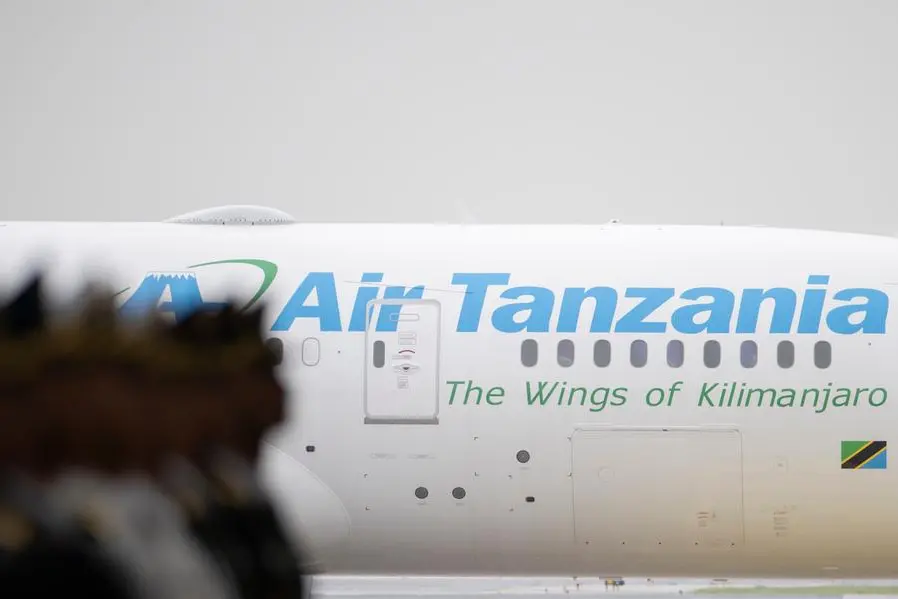PHOTO
The European Union’s decision to ban all Tanzania-registered aircraft from operating in its airspace has raised concerns about the effectiveness of the Tanzania Civil Aviation Authority (TCAA) and cast a shadow over the country's aviation and tourism sectors.
Announced on June 3 in the EU’s latest update to its Aviation Safety List, the ban cites “serious deficiencies in national aviation oversight” as the reason for blacklisting all Tanzanian carriers.
Suriname was also included on the revised list.
While no Tanzanian airline currently operates flights to Europe, the implications of the ban are far-reaching, especially for Air Tanzania’s plans to expand its long-haul network.
Air Tanzania’s dream of launching direct flights between Dar es Salaam and London’s Gatwick Airport could have been dashed by the stance taken by the European bloc.
The Tanzanian flag carrier had long planned the Gatwick route as part of its broader ambition to expand its long-haul network from Dar es Salaam, which includes routes to Guangzhou, China, and Mumbai, India.
The ban, issued by the European Commission’s directorate-general for mobility and transport, also applies to the United Kingdom — despite its exit from the EU — as the UK continues to honour aviation safety advisories from Brussels.“Passenger safety remains our top priority. Following a detailed technical assessment, the European Commission has added all air carriers certified in Suriname and Tanzania to the EU Air Safety List due to serious deficiencies in national aviation oversight,” said Apostolos Tzitzikostas, the EU Commissioner for Transport.“We urge both countries to address these issues promptly. The Commission stands ready to support their efforts toward full compliance with international safety standards.”The Commission did not specify the exact deficiencies found in the TCAA’s oversight or cite any particular safety violations by the affected airlines.
While none of the banned Tanzanian airlines currently operate flights to the EU or the UK, the universal ban sets back any plans to enter the market. Air Tanzania, which once flew to Frankfurt, Rome, and Athens, had hoped to re-enter the European market as part of its turnaround strategy.
According to its in-flight publication, Twiga Magazine, ATCL had planned to launch direct flights to Gatwick—London’s second busiest airport—as early as this year. The airline announced that it had secured three weekly landing slots at Gatwick in June 2024, with plans to operate two flights a week from Dar es Salaam and one from Kilimanjaro.
The EU ban now slams the brakes on these plans, casting doubt on Air Tanzania Company Ltd’s long-term recovery strategy, which relies heavily on expanding into long-haul and intercontinental markets. The regional market, meanwhile, remains highly competitive, with dominant players such as Ethiopian Airlines and Kenya Airways crowding out smaller carriers.
The London route has long been considered a lucrative one. Ethiopian, KQ, Uganda Airlines, and RwandAir all operate direct flights to the UK capital.
Air Tanzania joins a list of African national carriers currently banned from the EU: Air Zimbabwe, Congo Airways (DRC), Eritrean Airlines, Air Libya, and Sudan Airways.
While the EU updates its Air Safety List regularly, it remains unclear when Tanzanian carriers might be removed, or how long the restrictions will last.
Industry analysts say the ban reflects a broader failure in aviation oversight.“It raises questions about TCAA’s capacity to enforce safety standards and uphold international regulatory expectations,” one expert observed.
The EU’s action follows a partial ban imposed in December 2023 that targeted Air Tanzania specifically. At the time, officials from the European Commission and aviation experts were in Tanzania to assist both the Tanzania Civil Aviation Authority and Air Tanzania in closing identified safety gaps. Those efforts now appear to have fallen short.
Concerns raised by the EU reportedly included the operation of aircraft beyond mandated maintenance intervals, staffing shortages in key technical departments, and weaknesses in the regulator’s independence.
For Air Tanzania, the impact is particularly significant. The national carrier operates three Boeing 787-8 Dreamliners—long-haul aircraft whose potential remains underutilised due to limited access to international markets.
The airline has been working toward securing a Third Country Operator (TCO) certification, a prerequisite for launching flights to London Gatwick. Although the United Kingdom is no longer part of the EU, the UK Civil Aviation Authority typically aligns with EU safety assessments in its own decisions.“If Air Tanzania cannot access European destinations, it weakens its business case for operating wide-body aircraft, which are capital-intensive assets,” the analyst added. “This affects not only revenue projections but also the airline’s ability to participate fully in international partnerships and interline agreements.”From an operational safety standpoint, Air Tanzania remains a member of the International Air Transport Association (IATA) and holds a current IOSA (IATA Operational Safety Audit) certification — widely regarded as the industry’s gold standard. The EU ban may therefore reflect shortcomings more on the regulator’s side than the airlines.
Still, the road to reinstatement could be long. Without demonstrable progress in meeting international standards, Tanzania risks further isolation from global aviation networks — affecting not only its flag carrier but the broader ecosystem of tourism, trade, and investment that depends on strong and credible air connectivity.
© Copyright 2022 Nation Media Group. All Rights Reserved. Provided by SyndiGate Media Inc. (Syndigate.info).




















